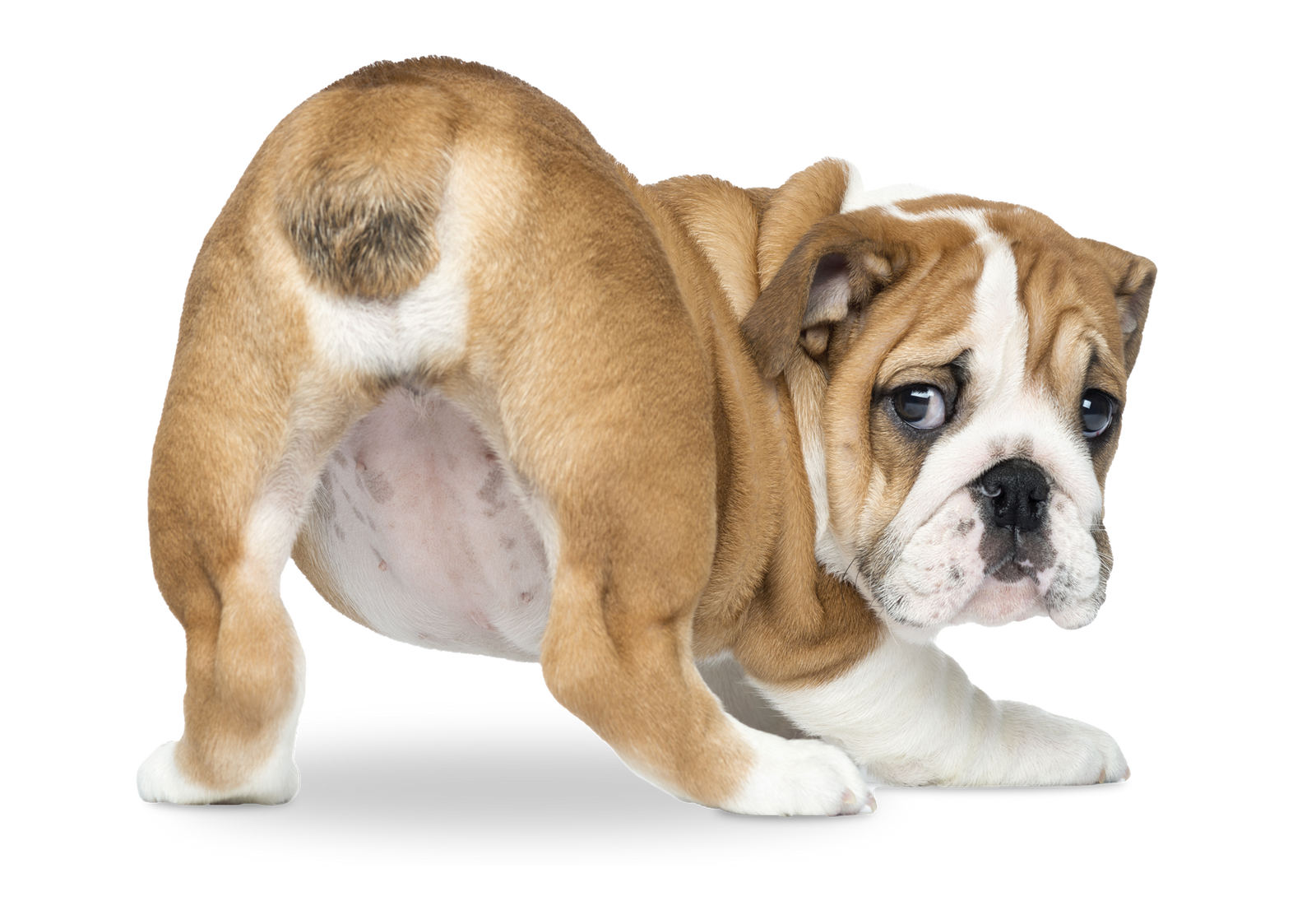How to Help a Scooting Dog with an Itchy Butt

We all love our furry companions, but let's face it––sometimes the life of a pet parent can be a little less than glamorous! And if you've ever caught your pup scooting across the floor like a maniac, you know exactly what we're talking about.
While it may seem silly or even cute at first, excessive scooting can actually be a sign of discomfort and irritation––particularly in the anal region. So if you want to help your four-legged friend find relief from their itchy butt, keep reading! In this post, we'll cover everything you need to know about how to help a scooting dog with an itchy butt.
What’s causing my dog’s itchy butt?
There are a variety of reasons your dog could be experiencing itchiness around their butt. If your dog is scooting circles around the living room carpet, talk to your veterinarian––an underlying condition could be to blame.
Anal sacculitis
One possible cause of your dog's itchy butt is anal sacculitis, which occurs when the anal glands become irritated and inflamed. Anal glands are small sacs located on either side of your dog’s anus that secrete a foul-smelling fluid. This fluid is used to mark territory and communicate with other dogs, and should be expressed naturally every time your dog poops.
If the glands become full or uncomfortable, your dog may express their discomfort by scooting. Anal gland infections are usually treated with antibiotics prescribed by your vet.
Allergies
Allergies can also be the culprit of itchy butts in dogs. Food allergies can cause itchiness all over the body, while environmental allergies (such as pollen or dust mites) or an allergy to a topical product can cause localized itchiness. If your dog has never had anal gland problems before but suddenly starts scooting, it’s worth considering whether anything has changed in their environment that could be causing an allergic reaction.
If you think your dog's itchy butt could be due to some form of allergies, talk to your vet about possible solutions, such as switching to a hypoallergenic shampoo or changing their diet.
Parasites
If your dog is constantly licking or biting their butt, this could also be a sign of an underlying health condition, like parasites or other gastrointestinal issues. If you notice your dog excessively licking or biting their butt, make an appointment with your vet so they can rule out any potential health problems related to parasites or the GI tract.

5 tips & treatments for your dog’s itchy butt
If you've ever noticed your furry friend dragging their rear end across the floor, chances are they're experiencing some serious discomfort in that sensitive area. But don't worry––there are plenty of ways to help a scooting dog with an itchy butt!
-
Ask your veterinarian
If your dog’s itching seems abnormal, you may need to consult your veterinarian for more customized treatment options. They might prescribe an oral antihistamine or a topical corticosteroid cream to help relieve severe itchiness and will help you determine the root cause of symptoms. Once any underlying health issues have been ruled out or treated, there are a few things you can do at home to help soothe your dog's itchy bum!
-
Keep things clean
First and foremost, regular grooming is key! This means weekly (or daily, if your dog is really uncomfortable) baths with a medicated shampoo and paying close attention to the anal area after your dog poops. Cleaning under the tail with a damp cloth or hygienic pet wipe can help remove any bacteria or debris that could be causing the itch. You can also try using a hypoallergenic wipe or washing your dog's bottom if they are prone to seasonal allergies.
-
Consider allergy testing
In extreme cases, your vet may also recommend allergy testing or immunotherapy if they believe allergies are the root cause of the problem.
-
Try a topical spray
Spraying areas of localized itching with a medicated spray can deliver huge relief for your dog’s itchy butt. You can take an effective hands-off approach with a topical spray, preferably with medicated ingredients designed to soothe itching. Hydrocortisone is great for targeting inflammation that can cause itching, while lidocaine can help with pain and discomfort on the skin.
-
Help dogs empty anal glands on their own
One of the best ways to ease itching caused by anal sacculitis or related issues is to help your dog empty their anal glands on their own. You can do this by adding balanced fiber to their diet–a mix of soluble and insoluble–and by making hydration easy by providing plenty of clean water to drink every day.
-
Support the skin barrier
If your dog's scooting is caused by dry skin, you can try applying a small amount of coconut oil, lanolin, or petroleum jelly to the area. This will help to moisturize the skin and provide some relief from the itchiness. Just be sure not to use too much, as this can make the problem worse.
-
Revisit their diet
A healthy, balanced diet is important for all dogs, but it can be especially helpful for those with chronic anal itching. Your vet can recommend a food that will be easy on your dog's digestive system and ultimately help reduce any inflammation happening in the anal area.
Can using Quercetin for dogs help with an itchy butt?
As a pet parent, there's nothing worse than seeing your furry friend deal with discomfort. And when it comes to scooting dogs with itchy butts, the struggle is real! Thankfully, certain ingredients can be beneficial for itch relief when given to dogs as part of their regular diet.
Some dog supplements include ingredients with natural antihistamine properties, like quercetin, to help pets find relief from rear-end itchiness. Quercetin is a natural antihistamine and anti-inflammatory compound found in plants like onions, berries, and camellia sinensis (green tea). It can be taken as a supplement or applied topically to the affected area––depending on what works for your pet!
Regarding the anal glands, using quercetin for dogs can help to soothe irritation, target inflammation, and provide relief from itching. It may also help with the effects of seasonal allergies by inhibiting the release of histamine from mast cells in the immune system (the cause of itching).
If your dog is suffering from anal gland itchiness or allergies, talk to your vet about whether quercetin could be a helpful option. Some anal gland supplements for dogs are also made with quercetin, which could be a tasty option for dogs who regularly experience itchy butts.
If your dog continues to scratch their bottom despite these home treatments, it's important to take them back to the vet for further investigation. They may need stronger medication or even surgery if the problem is severe enough––but don't despair! Most scooting pups can be helped at home with the right support!





